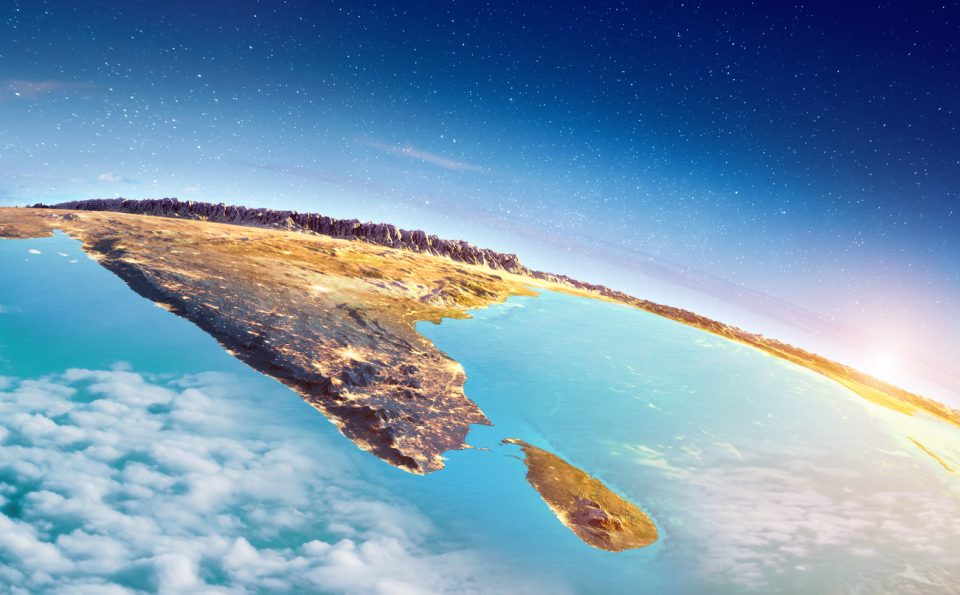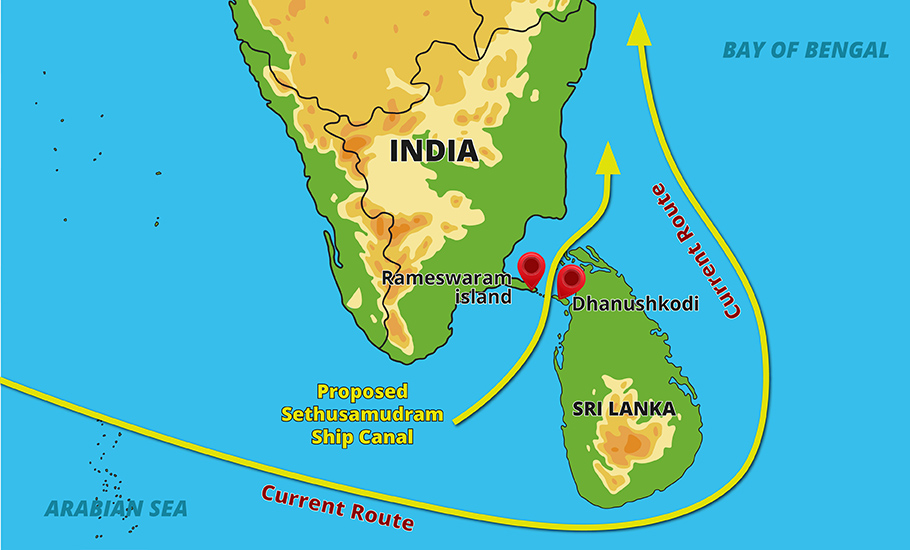
Explained: What ails the Sethusamudram canal project
While a resolution moved in TN Assembly may pave the way for the project to be revived with a different alignment, environmental concerns may continue to dog it

The Sethusamudram Shipping Canal Project, which has as many supporters as it does detractors, is in the news again.

On Thursday, all political parties in Tamil Nadu voted for a resolution urging the Union government to take up the shelved Sethusamudram project. The aim is to create a sea link between the western and eastern coasts of India so that ships can avoid going around Sri Lanka. This is seen to help maritime trade, akin to Panama and Suze canals.
The resolution, moved by Chief Minister MK Stalin, cited a recent statement of Union Science Minister Jitendra Singh, who said it is difficult to say if Adam’s Bridge, or Ram Sethu, actually existed between India and Sri Lanka as stated in the Ramayana.
What’s the project expected to achieve?
First conceived in 1860 by the British, the Sethusamudram project aims to cut travel time and distance on the sea. The DMK is a vociferous backer of the initiative which, it says, will greatly boost the economy.
Also read: On World Water Day, a look at India’s key inter-state river disputes
Ahead of the resolution vote in the Tamil Nadu Assembly on Thursday, Stalin said the project is “essential to strengthen the economic development of Tamil Nadu and India”.
The project offers multiple benefits, said Stalin. “This project will help fishermen travel from Gulf of Mannar to Palk Straits and prevent transhipments of Indian goods at ports in Sri Lanka and other countries. Besides, the project will also strengthen India’s security, and provide jobs to 50,000 people,” he argued.
What’s its political history?
While it was the Atal Bihari Vajpayee government that gave the initial green light in 1998, it was Prime Minister Manmohan Singh who launched the ₹2,400-crore project on July 2, 2005.
Both religious groups and greens have vehemently opposed the project – from varying standpoints. Hindu groups say it will require dredging and deepening of a shallow stretch of the Palk Strait, which divides India and Sri Lanka and which is said to be part of the Ram Sethu, the bridge which Lord Rama is said to have crossed to invade Sri Lanka.
Also read: Dhaka, Seoul snub China’s claim on Padma Bridge in Bangladesh
Ram Sethu is a chain of limestone shoals between Rameshwaram island off India’s southeast and Mannar island off Sri Lanka’s northwest.
On Thursday, Stalin accused the BJP of being a “stumbling block” in its implementation. “If political stumbling blocks weren’t raised, the project would have been implemented a decade ago, leading to development,” he said. He recalled the BJP’s promise of implementing it with a different alignment.
What are the environmental objections?
Meteorological researchers view the region as highly vulnerable due to unpredictable cyclones. The Tamil Nadu Pollution Control Board refused to clear the project. The Gulf of Mannar Marine Biosphere Reserve, with 3,600 flora and fauna species, is only 20 km away from the canal’s alignment. Seagrass is vital for prawn, turtle and fish; they will be hit by loss of coral reef.
Work at the project site came to a halt in 2009. Janata Party President Subramanian Swamy had filed a petition in the Supreme Court in 2009 asking for it to be scrapped, since the National Institute of Oceanography had doubted its feasibility.
The Federal Explainer | Samudrayaan mission explained: India to send humans 500m under sea
The UPA government had told the Supreme Court that it had already incurred ₹829.32 crore on the project as on June 30, 2012.
How did the debate get renewed?
A recent statement by the Union Science Minister in Parliament rekindled hopes that the project would be started again. No wonder, the BJP, which had opposed the project earlier, supported the Tamil Nadu resolution on Thursday but with a rider. It said the project should not affect Ram Sethu.
On Friday, Tamil Nadu BJP president K Annamalai said the party will support the Sethusamudram proposal only if the Tamil Nadu government, in consultation with the Centre, is ready to explore an alternative alignment for executing the project without disturbing Ram Sethu.
He told journalists in Tirunelveli that the proposal mooted by the erstwhile Congress-led UPA Government in 2008 for executing Sethusamudram project via ‘Alignment 4A’ would trigger serious ecological disaster besides disturbing the Ram Sethu, “an 18,000-year-old structure”. The Centre, in 2018, had informed the Supreme Court that it would explore the possibilities of executing the project with an alternative alignment without damaging Ram Sethu.
Also read: Karnataka’s largest tech-induced irrigation project in muddy waters?
However, Jitendra Singh had said there are limitations in exploring Ram Sethu through satellite imaging. The Ramayana history, he said, was more than 18,000 years old and the bridge was supposed to be 56 km long. The shoals, he said, “can’t be accurately said to be remnants of parts of a bridge”. Satellite images, he added, “cannot provide direct information about the origin and age of this structure”.
While the environmental concerns remain intact, a change of politicals winds may take the Sethusamudram project forward.

